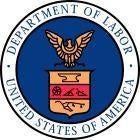ARLINGTON, Va. — The U.S. Department of Labor's Mine Safety and Health Administration today signed a memorandum of understanding with the Interstate Mining Compact Commission to facilitate communications that promote and protect the nation's mining workforce. With the signing of the MOU, MSHA and the member states of the IMCC pledge to consult, coordinate and cooperate effectively and efficiently in carrying out this goal.
The MOU was signed during a meeting addressing mine emergency response gaps and improving coordination between MSHA and member states during mine emergencies. It was held at MSHA's Approval and Certification Center in Triadelphia, W.Va. Development of an MOU has been underway since MSHA and the IMCC first opened discussions in early 2010.
"Good communication between federal agencies and state governments is critical to improving mine safety and health," said Joseph A. Main, assistant secretary of labor for mine safety and health. "The increased federal-state cooperation that comes from this MOU will help us promote a culture of safety in the mining industry, and encourage operators to live up to their legal obligations and moral responsibility to provide miners with a safe and healthful workplace."
"While member states have worked cooperatively and in close coordination with MSHA over the years, today's MOU clarifies and solidifies our working relationship," said Gregory E. Conrad, the IMCC's executive director. "Under the terms of the MOU, we believe that the states and MSHA are well-positioned to implement our respective responsibilities under state and federal mine safety and health laws in a spirit of effective and efficient communication, cooperation and coordination on matters of mutual concern and interest."
Some of the areas for collaboration and coordination from which MSHA and the IMCC will benefit include:
- Accident investigation and reporting.
- Emergency notification and response.
- Mine rescue teams and training.
- Certification, decertification and qualification of key miner positions, including foremen, examiners, blasters and electricians.
- Coal waste impoundment safety.
- Underground mine mapping.
- Mine plan approvals.
- Liaisons with family members and the public following mine accidents.
The IMCC is an organization comprised of governors of member states who are concerned with mining regulation. The IMCC gives the member states a forum for action on and communication about mining and related issues. The IMCC is intended to foster development and production of the mineral wealth of each member state through effective, cooperative regulatory efforts that both protect the health and safety of the nation's miners, and protect and preserve human health and the environment. The Mine Safety and Health Committee of the IMCC was established in 1996 to serve as a liaison between MSHA and the IMCC on issues surrounding miner safety and health.
MSHA strives to prevent deaths, injuries and illnesses in the nation's more than 14,000 mines through a variety of activities and programs. The agency develops and enforces safety and health rules applying to all U.S. mines, helps mine operators with special compliance problems, and makes available technical, educational and other types of assistance. MSHA works cooperatively with industry, labor and other federal and state agencies toward improving safety and health conditions for all miners. MSHA's responsibilities are spelled out in the Federal Mine Safety and Health Act of 1977.


 />i
/>i

